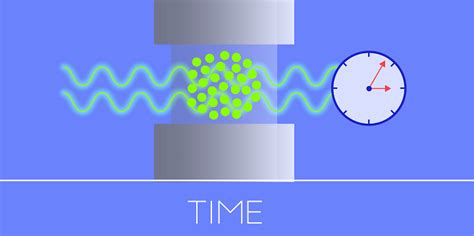The concept of time has been a fundamental aspect of human existence, governing our daily lives, schedules, and routines. As civilization has progressed, so too has our understanding and measurement of time. From ancient sundials to modern atomic clocks, the evolution of time measurement has been a remarkable journey, driven by human ingenuity and technological advancements.
The Importance of Time Measurement
Time measurement has played a crucial role in human history, enabling us to organize our lives, coordinate activities, and make sense of the world around us. Accurate timekeeping has been essential for navigation, trade, science, and communication, facilitating global connectivity and progress. With the advent of modern technology, time measurement has become even more precise, allowing us to synchronize our lives with unprecedented accuracy.
The Evolution of Time Measurement
The history of time measurement is a fascinating story, marked by significant milestones and innovations. From ancient civilizations to modern times, each era has contributed to the development of more accurate and sophisticated timekeeping methods.
The Ancient Era: Sundials and Water Clocks
In ancient times, people used sundials and water clocks to measure time. Sundials, which rely on the shadow of a vertical stick or object to indicate time, were widely used in ancient Egypt, Greece, and Rome. Water clocks, also known as clepsydras, measured time by the flow of water from one container to another, were used in ancient China, Babylon, and Egypt.

The Mechanical Era: Pendulum Clocks and Quartz Crystal Oscillators
The invention of mechanical clocks in the Middle Ages revolutionized time measurement. Pendulum clocks, developed by Dutch scientist Christiaan Huygens in 1656, used a swinging pendulum to regulate the movement of the clock's gears. Later, quartz crystal oscillators, which rely on the vibrations of quartz crystals to measure time, were introduced in the 1920s.

The Digital Era: Atomic Clocks and Satellite Navigation
The development of atomic clocks in the 1950s marked a significant milestone in time measurement. Atomic clocks use the vibrations of atoms to regulate their timekeeping, achieving unprecedented accuracy. The advent of satellite navigation systems, such as GPS, has further transformed time measurement, enabling global positioning and synchronization.

Modern Time Measurement: High-Tech Innovations
Today, time measurement has reached unprecedented levels of accuracy, thanks to advances in technology. Some of the latest innovations in time measurement include:
- Optical clocks: These clocks use light to measure time, achieving accuracy levels of 10^-18 seconds.
- Quantum clocks: These clocks use the principles of quantum mechanics to measure time, promising even greater accuracy.
- GPS and satellite navigation: These systems use a network of satellites to provide global positioning and time synchronization.

The Impact of Time Measurement on Modern Society
Accurate time measurement has had a profound impact on modern society, facilitating global connectivity, trade, and communication. Some of the key benefits of modern time measurement include:
- Global synchronization: Modern time measurement enables global synchronization, facilitating international trade, communication, and travel.
- Scientific research: Accurate time measurement is essential for scientific research, enabling scientists to study complex phenomena and make precise measurements.
- Navigation and transportation: Modern time measurement is critical for navigation and transportation, enabling safe and efficient travel.

Gallery of Time Measurement Innovations






FAQs
What is the most accurate method of time measurement?
+The most accurate method of time measurement is currently the optical clock, which uses light to measure time and achieves accuracy levels of 10^-18 seconds.
How does GPS satellite navigation rely on time measurement?
+GPS satellite navigation relies on accurate time measurement to provide global positioning and synchronization. GPS satellites transmit time signals, which are received by GPS receivers on the ground, enabling them to calculate their position and time.
What is the impact of modern time measurement on scientific research?
+Accurate time measurement is essential for scientific research, enabling scientists to study complex phenomena and make precise measurements. Modern time measurement has enabled breakthroughs in fields such as physics, astronomy, and engineering.
Conclusion
The evolution of time measurement has been a remarkable journey, driven by human ingenuity and technological advancements. From ancient sundials to modern atomic clocks, each era has contributed to the development of more accurate and sophisticated timekeeping methods. Today, time measurement plays a critical role in modern society, facilitating global synchronization, scientific research, and navigation. As technology continues to advance, we can expect even more precise and innovative methods of time measurement to emerge, shaping the future of human civilization.
